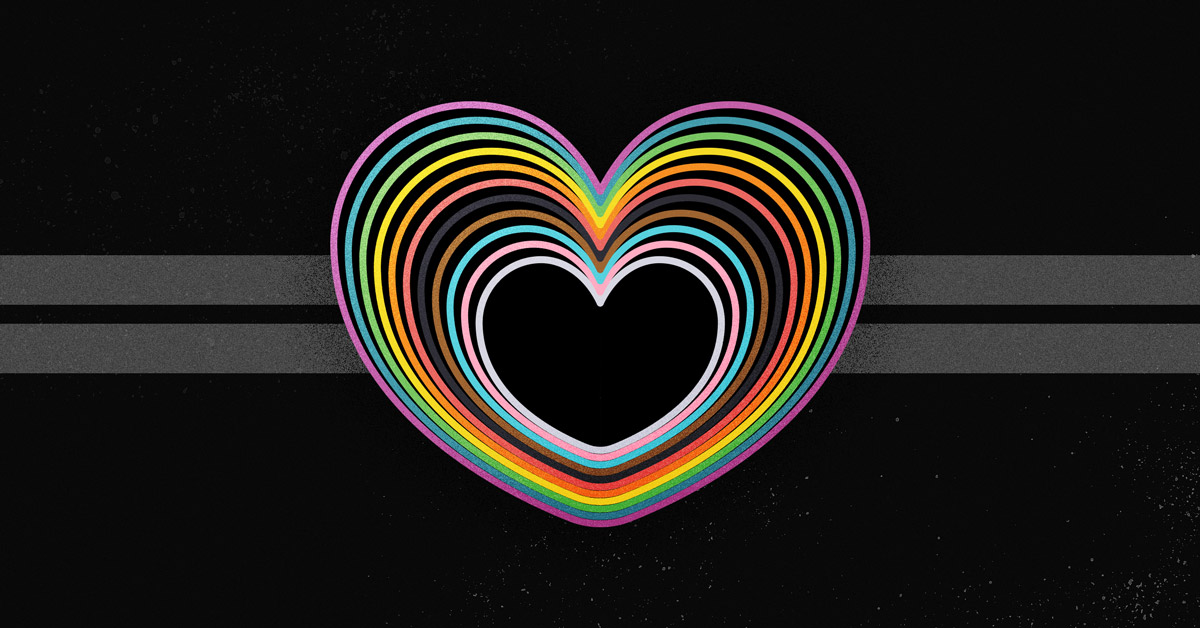This Pride Month Is Historic — Let’s Keep That Momentum Going

Five years ago I was sitting at my desk at Nebo when the Supreme Court of the United States ruled in favor of marriage equality in the landmark case Obergefell v. Hodges. I say sitting at my desk, not working, because I had been glued to the SCOTUS live blog that whole morning, impatiently waiting for the ruling. When it was announced, I was flooded with relief and excitement. I feverishly texted my then-girlfriend plans to meet and get a celebratory lunch. We got lobster rolls at The Optimist, a place around the corner from the old Nebo office.
We toasted to love winning. The Optimist was a fitting place to celebrate, because what I remember most about that moment in time was a shared, swelling feeling of optimism we had for the future. After all, just two years prior, SCOTUS had struck down Section 3 of DOMA, and the ruling in 2015 was the court coming through to finish it off, Mortal Kombat style. It felt like victories were mounting and continued progress was inevitable.
We got engaged a few months after that, and my wife and I were married in late October of 2016 (ilysm, babe). Just a couple of weeks after we got home from our honeymoon, it became ultra apparent that the wave of progress we had been riding was breaking.
Marriage Was Not the Finish Line
We have said it before, and we’ll say it again: marriage equality is not nearly enough. There are a million reasons why that is the case, but chief among them is that LGBTQ+ people in this country are not equally protected under the law for so many things beyond a specific class of romantic relationships, such as access to housing and healthcare.
Last week, in the decision on Bostock v. Clayton County, SCOTUS ruled that discrimination against LGBTQ+ folks in the workplace violates Title VII of the Civil Rights Act of 1964. This is monumental because while marriage was a culturally significant win, not everyone wants to get married. Working, on the other hand, is a survival must-have for pretty much everyone.
But what’s even more exciting about this ruling is that it clearly states that Title VII protects LGBTQ+ folks because you cannot discriminate against them without it being on the basis of sex. This means that this case sets up a legal precedent for future LGBTQ+ rights cases in a way that Obergefell v. Hodges wasn’t able to do.
That precedent is going to come in handy because we have a long way to go.
In Georgia, I am not legally protected from discrimination when I seek housing. There is no law here prohibiting the insanely dangerous practice of “conversion therapy.” There is no law that addresses hate or bias crimes. For trans folks in Georgia, the lack of protections goes on — there isn’t a ban on insurance exclusions for healthcare for trans people, nor is there a policy that allows gender marker updates on driver’s licenses or birth certificates.
The HRC has an interactive map that shows where states stand on these and other important issues, and it’s chilling to see the huge swaths of this country where LGBTQ+ people are more vulnerable.
And, to be clear, this isn’t just a lack of progress. LGBTQ+ rights are still openly under attack. We saw this on June 12, the fourth anniversary of the Pulse nightclub shooting, when the Department of Health and Human Services issued a rule that rolls back trans-inclusive protections in the Affordable Care Act. In the middle of a pandemic.
We have a long way to go.
Pride Is Getting a Reboot
Earlier this year, when the reality of the COVID-19 situation was rippling through the country and everything from major sporting events to leaving your house got canceled, we lamented as Pride celebrations, too, got postponed and called off. For many, Pride marks a rare moment in the year where we are finally surrounded by other queer folks and our community on such a large scale. It is a joyous time.
However, Pride is far from perfect. It has a history of marginalizing QTBIPOC and it is for that very reason so many cities hold Black Prides. Since the passage of marriage equality, we have seen a swell of corporate interest in Pride, and with that Rainbow Capitalism and persistent marketing messaging that “Love Wins.” But love does not and cannot “win” when we turn a blind eye to violence and discrimination against our own community.
Pride started as a rebellion against police violence. All of the progress we’ve made in the fight for LGBTQ+ equality, both socially and legally, is thanks to Black and Brown queer and trans folks who fought back against a police raid of the Stonewall Inn in 1969. The first Pride parade marked the one-year anniversary of that uprising. It was not a party, it was a protest.
The recent uprising against systemic racism in the U.S. has highlighted the urgent need to dismantle white supremacy and protect Black lives. This is equally true within the queer community, as queerness does not an anti-racist make. It was only a couple of years after the first Pride that transgender activists Marsha P. Johnson and Sylvia Rivera were pushed out of the forefront to make way for a message that blending in was needed for acceptance.
Violence against Black trans people is a crisis. This month, two Black trans women, Dominique “Rem'mie” Fells and Riah Milton, were killed within 24 hours of one another. Since the murder of George Floyd in May, we also lost Tony Mcdade to police violence and Iyanna Dior was attacked by a violent mob.
We have continued to fail QTBIPOC over the past fifty years, and this Pride season we are beginning to see a much-needed change in tone and focus on social justice.
And this tone shift is exactly what we saw a little over a week ago, when 15,000 people showed up for the Brooklyn Liberation Action for Black Trans Lives. This was one of many protests and rallies for Black trans folks that have taken place over the past few weeks, and this one raised over $1,000,000 for Black Trans Futures through the organization GLITS. This is the Pride we need.
How You Can Start to Change Your Pride
As I said before, we have a long way to go. We need to keep up the momentum and continue to fight for justice for Black LGBTQ+ folks. Here are just a handful of steps you can take to center Black LGBTQ+ folks in Pride celebrations and in your daily life:
- Start using the Progress Pride Flag. The whole point of a flag is symbolism, so using Daniel Quasar’s flag design is a simple and obvious first step in centering QTBIPOC in Pride.
- Donate to organizations that support Black queer and trans people. I encourage you to do your research, find an organization whose mission you connect with and seek additional ways that you can support their efforts. Here are a few to look into:
- Atlanta Specific Organizations:
- SNaP Co - https://www.snap4freedom.org/
- Spark Reproductive Justice - http://www.sparkrj.org/
- Southern Fried Queer Pride - http://www.southernfriedqueerpride.com/
- National & Global Organizations:
- The Okra Project - https://www.theokraproject.com/
- Trans Women of Color Collective - https://www.twocc.us/
- Black AIDS Institute - https://blackaids.org/
- Atlanta Specific Organizations:
- Seek non-monetary ways to support Black queer and trans people. If you are not able to contribute money to a cause (and even if you can, you shouldn’t stop there) take actions that support the work that needs to be done. Follow organizations and activists speaking out for Black trans folks on social media, amplify their voices, sign petitions, contact your representatives.
- Stop appropriating Black Vernacular English and specifically the language of Black queer and trans people, especially if you’re profiting off of it (*ahem* marketers). I recommend you check out these four things to consider with using slang and work to understand when and why this is problematic.
- Continue to educate yourself. Follow news coverage that amplifies Black queer and trans voices fighting for justice. Learn about QTBIPOC history through biographies or documentaries. Engage those around you in conversations about what you learn.
Take those steps and then think about all of the ways that shortlist is incomplete. Then take those actions you think of and encourage those around you to do the same. Take every step you can imagine that brings you closer to protecting Black LGBTQ+ futures. Love hasn’t won until Black queer and trans lives are safe and celebrated.
I wish you all a very happy Pride.

Comments
Add A Comment